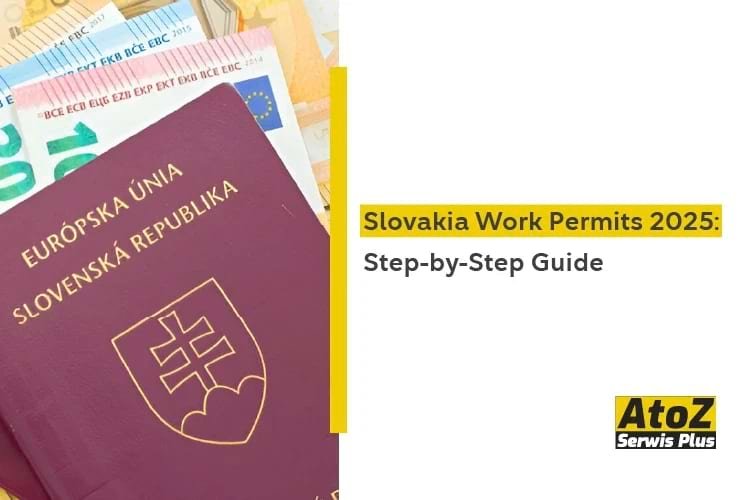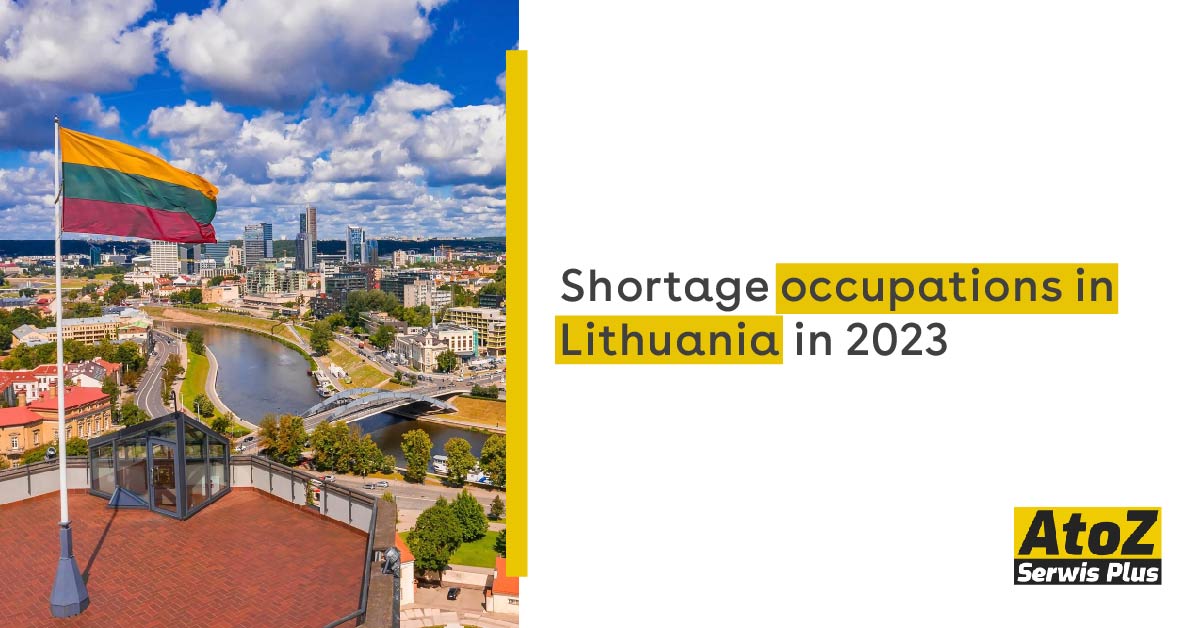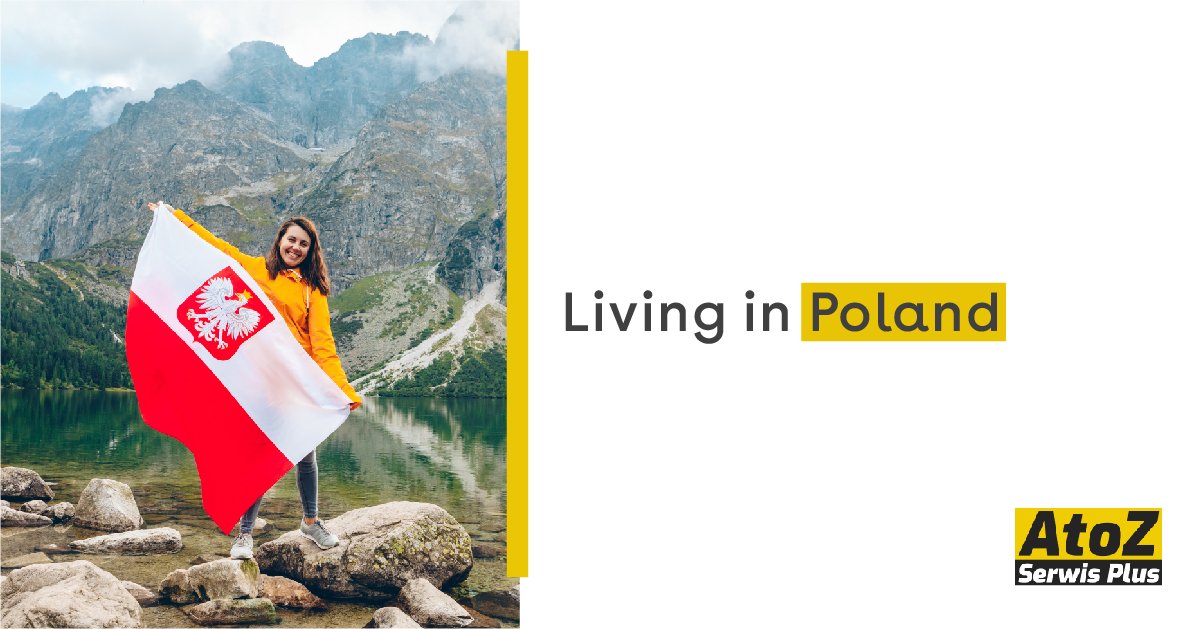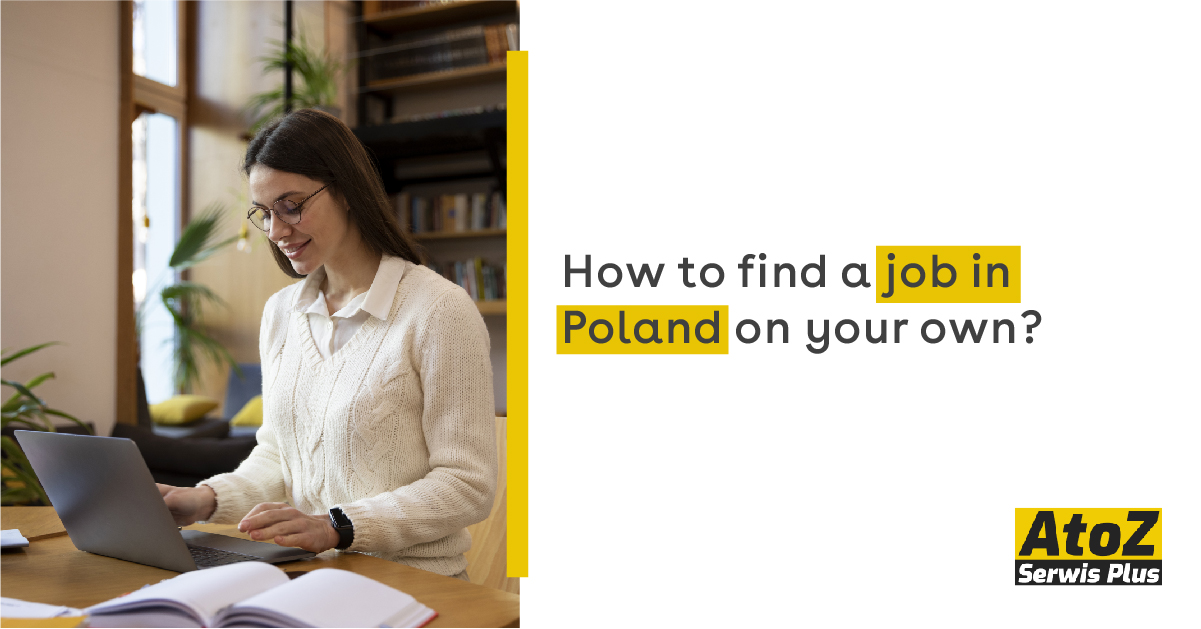

Slovakia Work Permits 2025: Step-by-Step Guide
Are you dreaming of working in the heart of Europe? With its rich culture and growing economy, Slovakia might be the perfect destination for your next career move. But before you pack your bags, there's one crucial step you need to tackle: obtaining a Slovak work visa.
Navigating the world of work visas can feel like trying to solve a complex puzzle. With various visa types, eligibility criteria, and application processes, it's easy to feel overwhelmed. But don't worry! We're here to guide you through the maze of Slovak work visa requirements, ensuring you have all the information you need to make your Slovak work experience a reality.
This comprehensive guide will help you understand different visa types, the application process, and even the path to permanent residency. So, whether you're a skilled professional, an entrepreneur, or a seasonal worker, let's embark on this journey to unlock your Slovak work visa and open the door to exciting new opportunities!
Understanding Slovak Work Visa Types
A. Temporary Residence Permit for Employment
The Temporary Residence Permit for Employment is the most common work visa for non-EU nationals seeking employment in Slovakia. This permit allows foreigners to live and work in the country for a specific period, typically up to two years, with the possibility of extension.
Key features:
- Valid for the duration of employment, up to 2 years
- Requires a confirmed job offer from a Slovak employer
- Allows for family reunification
B. EU Blue Card
The EU Blue Card is designed for highly skilled non-EU professionals seeking employment in Slovakia. This permit offers several advantages over the standard work permit.
Benefits of the EU Blue Card:
- Valid for up to 4 years
- Easier mobility within the EU
- Faster path to permanent residency
|
Criteria |
EU Blue Card |
Temporary Residence Permit |
|---|---|---|
|
Duration |
Up to 4 years |
Up to 2 years |
|
Skill Level |
Highly skilled |
Any skill level |
|
Salary Requirement |
1.5x average gross annual salary |
No specific requirement |
|
EU Mobility |
Yes |
Limited |
C. Intra-corporate Transferee Permit
This permit is designed for employees of multinational companies who are being transferred to a Slovak branch or subsidiary.
Key points:
- Valid for up to 3 years for managers and specialists
- Up to 1 year for trainee employees
- Requires at least 6 months of prior employment with the company
D. Seasonal Work Permit
The Seasonal Work Permit is intended for temporary workers in sectors with seasonal fluctuations, such as agriculture or tourism.
Characteristics:
- Valid for up to 90 days within 180 days
- Limited to specific sectors defined by Slovak law
- Simplified application process
Now that we've covered the main types of work visas in Slovakia, let's explore the eligibility criteria for each permit.
Eligibility Criteria for Slovak Work Visas
Educational qualifications
To be eligible for a Slovak work visa, applicants must meet specific educational requirements:
- Minimum education level: Generally, a high school diploma or equivalent is required
- Higher qualifications: Advanced degrees may be preferred for specific job categories
- Recognition of foreign qualifications: Diplomas and degrees obtained abroad must be recognised by Slovak authorities
|
Education Level |
Typical Requirements |
|---|---|
|
High School |
Diploma or equivalent |
|
Bachelor's |
3-4 year degree |
|
Master's |
1-2 year postgraduate |
|
PhD |
Doctoral degree |
Job offer requirements
A valid job offer is crucial for obtaining a Slovak work visa:
- Written job offer or employment contract from a Slovak employer
- The position must match the applicant's qualifications and experience
- Salary should meet or exceed the Slovak minimum wage
- Employment duration typically needs to be at least one year
Language proficiency
While not always mandatory, language skills can be beneficial:
- Slovak language: Not required for all positions, but may be necessary for specific jobs
- English proficiency: Often preferred, especially in international companies
- Other languages: Maybe an advantage depending on the nature of work
Age restrictions
There are no strict age limits for Slovak work visas, but:
- Minimum working age in Slovakia is 15 years old
- Retirement age (currently around 62-63 years) may affect long-term visa prospects
Health insurance coverage
Adequate health insurance is a key requirement:
- Proof of comprehensive health insurance coverage
- Insurance must be valid in Slovakia and cover the entire duration of stay
- May be provided by employer or obtained independently
With these eligibility criteria in mind, the next step is understanding the Slovak work visa application process.
Application Process for Slovak Work Visas
Gathering required documents
Before submitting your Slovak work visa application, gathering all necessary documents is crucial. Here's a comprehensive list of typically required items:
- Valid passport
- Completed visa application form
- Recent passport-sized photographs
- Proof of accommodation in Slovakia
- Employment contract or job offer letter
- Proof of qualifications and work experience
- Medical insurance certificate
- Criminal record check from your home country
|
Document |
Purpose |
|---|---|
|
Passport |
Identification and travel |
|
Application form |
Basic personal and visa information |
|
Photographs |
Visual identification |
|
Accommodation proof |
Verify living arrangements |
|
Employment documents |
Confirm job offer and terms |
|
Qualifications |
Validate skills and experience |
|
Insurance |
Ensure health coverage |
|
Criminal record |
Background check |
Submitting the application
Once you have gathered all required documents, you can submit your application:
- Schedule an appointment at the Slovak embassy or consulate in your home country
- Attend the appointment and submit your documents in person
- Pay the application fee
- Provide biometric data (fingerprints and photograph)
Visa processing times
Processing times for Slovak work visas can vary depending on several factors:
- Type of work visa applied for
- Completeness of application
- Current workload of the embassy or consulate
On average, processing times range from 15 to 30 days. However, it would be best to apply well before your intended travel date to allow for potential delays.
Fee structure
The fee for a Slovak work visa depends on the type and duration of the visa:
|
Visa Type |
Duration |
Fee (EUR) |
|---|---|---|
|
Short-term |
Up to 90 days |
80 |
|
Long-term |
1-2 years |
170 |
|
National |
Over 2 years |
230 |
Now that you understand the application process, let's explore the employer's role in acquiring a work visa.
Employer's Role in Work Visa Acquisition
A. Obtaining a work permit
The employer must obtain a work permit before an employee can apply for a work visa in Slovakia. This process involves several steps:
- Job market test
- Application submission
- Labor office approval
Here's a breakdown of the process:
|
Step |
Description |
Timeline |
|---|---|---|
|
Job market test |
Advertise the position locally |
30 days |
|
Application Submission |
Submit the required documents to the labor office |
1-2 weeks |
|
Labor office approval |
Wait for the decision on the work permit |
30-90 days |
B. Providing necessary documentation
Employers are crucial in providing essential documentation for the work visa application. This includes:
- Signed employment contract
- Job description
- Company registration documents
- Proof of accommodation for the employee
C. Sponsorship responsibilities
Sponsoring an employee for a work visa in Slovakia comes with several responsibilities:
- Ensuring compliance with labor laws
- Reporting any changes in employment status
- Maintaining accurate records of employment
- Assisting with the visa renewal process
Employers must also be prepared to contact immigration authorities and provide additional information if requested. Failure to meet these responsibilities can result in penalties and affect future visa applications.
Now that we've covered the employer's role, let's examine the rights and restrictions that work visa holders face in Slovakia.
Rights and Restrictions of Work Visa Holders
Duration of stay
Work visa holders in Slovakia are typically granted a stay duration that aligns with their employment contract, usually up to two years initially. This period can be extended if the employment continues. It's crucial to note that the visa's validity is directly tied to the employment relationship.
|
Visa Type |
Initial Duration |
Extension Possibility |
|---|---|---|
|
Standard Work Visa |
Up to 2 years |
Yes, if employment continues |
|
EU Blue Card |
Up to 4 years |
Yes, renewable |
|
Seasonal Work Visa |
Up to 6 months |
Limited, based on the season |
Family reunification options
Slovakia offers family reunification options for work visa holders, allowing them to bring their immediate family to the country. Eligible family members typically include:
- Spouse
- Minor children (under 18 years)
- Dependent adult children (in some cases)
The process requires providing sufficient income and accommodation for the family.
Travel within Schengen Area
Work visa holders in Slovakia enjoy the benefit of free movement within the Schengen Area for short stays. Key points include:
- Up to 90 days in any 180-day period
- No additional visa required for Schengen countries
- Must carry a valid passport and Slovak residence permit
Changing employers
While it's possible to change employers on a Slovak work visa, there are specific procedures to follow:
- Obtain a new job offer
- Apply for a new work permit with the new employer
- Notify immigration authorities of the change
- May require a new residence permit if changing visa type
It's important to note that changing employers without proper authorisation can lead to visa cancellation.
Extending and Renewing Work Visas
Extension requirements
To extend your work visa in Slovakia, you must meet specific criteria:
- Valid employment contract
- Continued need for your skills in the Slovak labour market
- Clean criminal record
- Compliance with previous visa conditions
|
Requirement |
Description |
|---|---|
|
Valid contract |
Current employment agreement |
|
Labor market need |
Ongoing demand for your expertise |
|
Criminal record |
No serious offences during stay |
|
Visa compliance |
Adherence to previous visa terms |
Renewal process
The renewal process involves several steps:
- Gather required documents
- Complete application form
- Pay renewal fee
- Apply to Foreign Police
- Attend biometrics appointment
- Await decision
Timing considerations
Timing is crucial when extending or renewing your work visa:
- Begin the process at least 90 days before expiration
- Apply no later than the last day of current visa
- Allow 30-90 days for processing
- Plan for potential delays or requests for additional information
Now that you understand the extension and renewal process let's explore the path to permanent residency in Slovakia.
Transitioning to Permanent Residency
Eligibility criteria for permanent residency
To transition from a work visa to permanent residency in Slovakia, you must meet specific criteria:
- Legal residence in Slovakia for at least 5 continuous years
- Steady income and financial stability
- Clean criminal record
- Proficiency in the Slovak language
|
Requirement |
Details |
|---|---|
|
Residence |
5+ years continuous legal stay |
|
Income |
Stable employment or business |
|
Character |
No criminal convictions |
|
Language |
Slovak language test (A2 level) |
Application process
The application process for permanent residency involves several steps:
- Gather required documents (passport, proof of accommodation, financial statements)
- Complete the application form
- Apply to the Foreign Police department
- Attend an interview and language test
- Wait for the decision (typically 90 days)
Benefits of permanent residency status
Obtaining permanent residency in Slovakia offers numerous advantages:
- Unrestricted access to the Slovak labor market
- Social Security benefits and healthcare coverage
- Freedom to travel within the Schengen Area
- Pathway to Slovak citizenship
- Right to vote in local elections
Permanent residency provides a stable foundation for long-term settlement in Slovakia. With this status, you can fully integrate into Slovak society and enjoy nearly all the rights of Slovak citizens. As you consider your future in Slovakia, permanent residency offers a compelling option for those looking to make the country their home.
Conclusion
Navigating the Slovak work visa process requires careful planning and attention to detail. From understanding the various visa types to meeting eligibility criteria and following the application process, each step is crucial in securing your legal right to work in Slovakia. Employers also have significant responsibilities in this process, making it essential for employees and companies to work together closely.
As you embark on your journey to work in Slovakia, remember that your work visa is just the beginning. Familiarize yourself with your rights and restrictions, stay informed about extension and renewal procedures, and consider your long-term goals, including the possibility of transitioning to permanent residency. By staying proactive and well-informed, you can maximise your professional opportunities in Slovakia while ensuring compliance with all legal requirements.


















